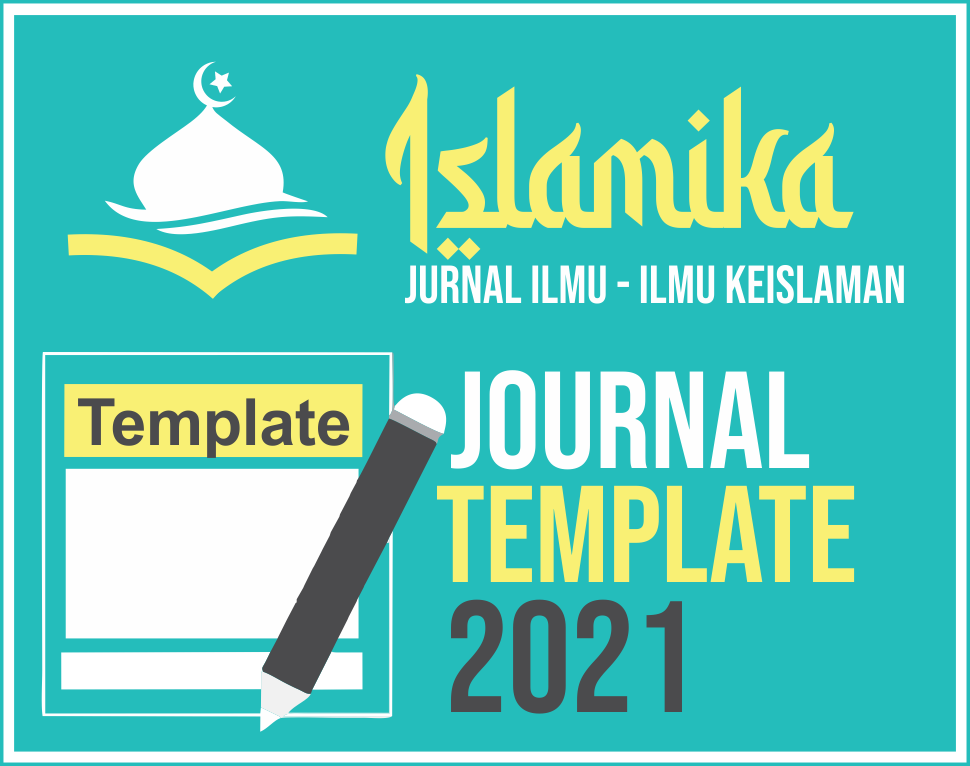Pendekatan Filsafat dalam Studi Islam di Era Moderen: Relevansi dan Tantangan Gaya Hidup Generasi Z
DOI:
https://doi.org/10.32939/islamika.v25i1.5217Abstract
This study aims to analyze the relevance of philosophical approaches in Islamic studies to the challenges of Generation Z lifestyle in the modern era, as well as to identify strategies for implementing Islamic philosophical values in contemporary digital life. Generation Z faces a dilemma between maintaining Islamic identity and meeting the demands of modernity that often conflict with religious principles. This research employs a qualitative method with a descriptive approach based on library research. The research sample consists of literature relevant to the research theme, including academic books, scientific journal articles, and digital content discussing Islamic philosophy, Generation Z characteristics, and modernity issues. The research instrument uses systematic literature selection techniques with criteria of thematic relevance, social and philosophical context relevance, and thematic continuity related to Islamic philosophy and Generation Z lifestyle. Data analysis is conducted through data source triangulation to ensure validity and objectivity of findings. The research results show that Islamic philosophical approaches, particularly the concepts of tawhid, Islamic epistemology (integration of naqli and aqli knowledge), Islamic ethics, and theology, have high relevance in helping Generation Z face modern lifestyle challenges. The discussion reveals three main aspects: Generation Z challenges in the digital context include social alienation, value conflicts, and critical attitudes toward religious institutions; the relevance of Islamic philosophy lies in its ability to integrate rationality and spirituality; and strategies for facing modernity through the unification of revelation and reasoning, strengthening Islamic ethics in the digital world, and understanding Islamic metaphysics. The research conclusion affirms that Islamic philosophy provides a framework of thought that can guide Generation Z to maintain their Islamic identity while adapting to the demands of the times, enabling them to live a balanced life between spirituality and modernity.
Downloads
References
Afifah, N., & Kuntari, S. (2025). Peran Media Sosial dalam Pembentukan Identitas Sosial Gen Z Di Aplikasi TikTok dan Instagram. PESHUM : Jurnal Pendidikan, Sosial Dan Humaniora, 4(3), 4409–4415.
al-Fārābī, A. N. M. (1961). Fuṣūl Al-madanī: Aphorisms of the Statesman. University Press.
Al-Ghazali, A. H. (2005). Ihya’’Ulumu Ad-Diin. Beirut: Dar Ibn Hazm.
Ananda, M., Suriansyah, A., & Rafianti, W. R. (2024). Pengaruh Media Sosial Terhadap Pembentukan Identitas Diri pada Generasi Z. MARAS: Jurnal Penelitian Multidisiplin, 2(4), 2279–2289. https://doi.org/10.60126/maras.v2i4.634
Fadli, M. R. (2021). Hubungan Filsafat dengan Ilmu Pengetahuan dan Relevansinya Di Era Revolusi Industri 4.0 (Society 5.0). Jurnal Filsafat, 31(1), 130. https://doi.org/10.22146/jf.42521
gadamer, hans-georg. (2019). Gadamer truth and method. Sustainability (Switzerland), 11(1), 1–14. http://scioteca.caf.com/bitstream/handle/123456789/1091/RED2017-Eng-8ene.pdf?sequence=12&isAllowed=y%0Ahttp://dx.doi.org/10.1016/j.regsciurbeco.2008.06.005%0Ahttps://www.researchgate.net/publication/305320484_SISTEM_PEMBETUNGAN_TERPUSAT_STRATEGI_MELESTARI
Hidayat, T. (2021). Media Sosial dan Dakwah: Peluang dan Tantangan. Deepublish.
ibn Rusyd, A. A.-W. M. ibn A. (2007). Tahafut al-falasifah (Incoherence of the philosophers). Adam Publishers.
Krippendorff, K. (2019). SAGE Research Methods Content Analysis: An Introduction to Its Methodology Introduction.
Maliki, B. I., Susanti, H., Syarifudin, E., & Fauzi, A. (2024). Kemampuan Berpikir Filsafat Dalam Perkembangan Ilmu Pendidikan Pada Generasi Z Di Sekolah Berbasis Islam Di Provinsi Banten. Edukasi Islami: Jurnal Pendidikan Islam, 12(001), 421–432.
Nurhidaya M, N., Fidzi, R., Muthahharah, S., & Zulfah, Z. (2024). Konsep Pendekatan Pembelajaran Pendidikan Agama Islam Dalam Membekali Generasi Z. Jurnal Mudarrisuna: Media Kajian Pendidikan Agama Islam, 14(3), 409. https://doi.org/10.22373/jm.v14i3.24228
Sabililhaq, I., & Utami, L. D. (2024). Revitaliasi Identitas dan Moralitas Pelajar Era 5 . 0 Melalui Pendidikan Berbasis Nilai-Nilai Islam. 9(1), 69–90.
SARI, S. (2019). Literasi Media Pada Generasi Milenial Di Era Digital. Profesional: Jurnal Komunikasi Dan Administrasi Publik, 6(2), 30–42. https://doi.org/10.37676/professional.v6i2.943
Susanto, M. (2023). Pemikiran filsafat Islam. Jurnal Pendidikan Tembusai, 7(3), 2745.
Tarigan, V. C. E., Asnawi, M. I., Rokan, M. P., Girsang, L. W. P., & Simbolon, N. (2024). Pengaruh Media Sosial Terhadap Keterlibatan Politik Generasi Z dalam Pemilihan Gubernur Sumatera Utara 2024. Locus: Jurnal Konsep Ilmu Hukum, 4(3), 99–106.
Downloads
Published
Versions
- 2025-07-15 (2)
- 2024-06-30 (1)
How to Cite
Issue
Section
License
Copyright (c) 2025 Ahsanul Izzah, Muhammad Shofiyulloh,Fidaul Qonita

This work is licensed under a Creative Commons Attribution-ShareAlike 4.0 International License.









